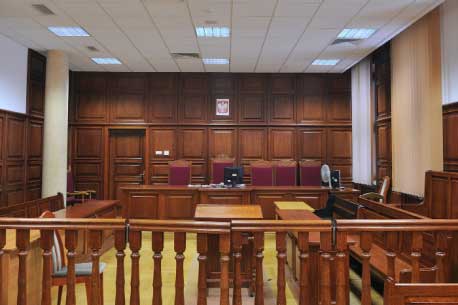The main purpose of criminal proceedings is to bring the perpetrator to justice. However, in addition to this, it is also considered important to direct the process so that the interests of the victim are taken into account. One such interest may be just getting compensation.
Polish law provides for several possibilities of claiming compensation from the offender - you can apply for them both in criminal and civil proceedings.
In criminal proceedings, it is assumed that if the injury or damage resulted from the crime, only the person who obtained the status of the injured person in the course of the investigation or investigation may claim compensation. The injured party in a criminal trial is a person whose legal rights have been directly violated or threatened with crime. The obligation to repair the damage is in the current legal status included in the catalog of criminal measures. The obligation to make good the damage is complex, because due to its compensatory role it causes a far-reaching approximation of criminal law to civil law. On the one hand, this means the need to take into account legal norms specifying the principles of compensation applicable to civil law, and on the other hand, due to the criminal obligation to repair the damage, it performs the function of a sanction.
It is worth noting that in Poland there are two different forms of compensation: the first is compensation for non-material harm (damage), and the second is compensation for material damage.
In a case of a crime causing harm or harm, the injured party may submit a claim for compensation or compensation for the harm suffered already at the stage of criminal proceedings. This possibility is provided for in art. 46 of the Penal Code. If such an application is submitted by an authorized person, the court's decision on these measures is obligatory. Apart from these cases, the court can always order compensation at its own discretion, without having to submit an application.
Moreover, the prosecutor is entitled to make a claim for compensation or compensation for non-material damage. He can do this until the end of the first interview of the victim at the main trial. Instead of an obligation to compensate for damage or compensation for harm, the court may alternatively order an interest for the victim.
It should be remembered that the criminal court is first obliged to decide on guilt and possible punishment against the accused, and in accordance with the rules of procedure, it should be conducted in a fast and efficient manner. The settlement of the issue of compensation is therefore considered as additional.
In civil proceedings, compensation for the directly injured person is regulated, among others, by art. 445 of the Civil Code. It provides that a person directly injured who, as a result of damage caused to him / her, has suffered bodily injury or health disorder, the court may award a sum of money in damages for the harm suffered.



